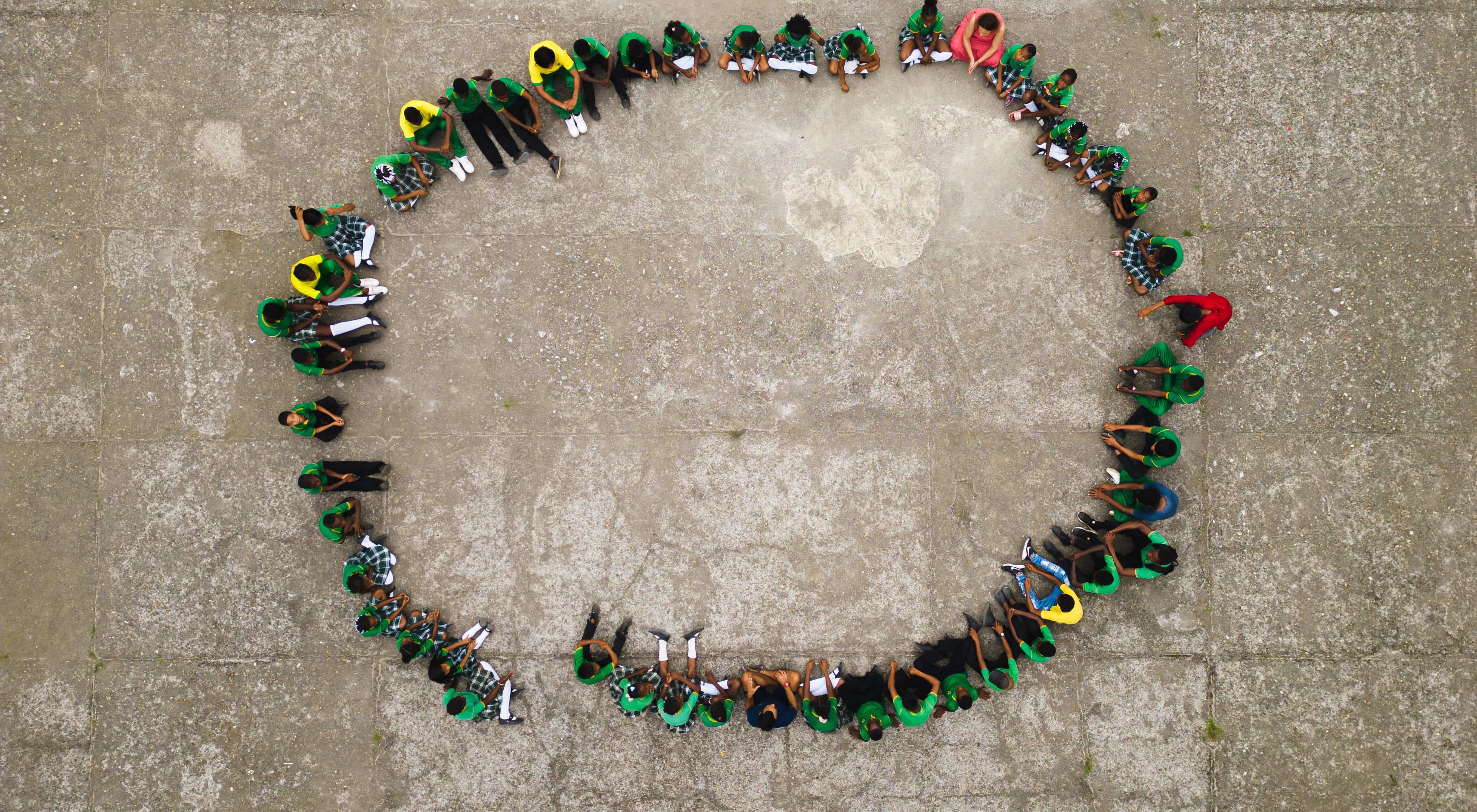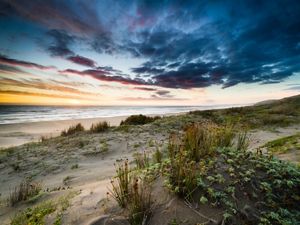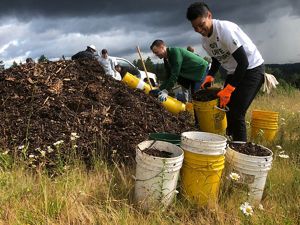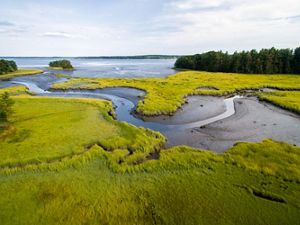A Festival for the Future
In one of the world’s most biodiverse places, a young leader is using education as a tool for change.
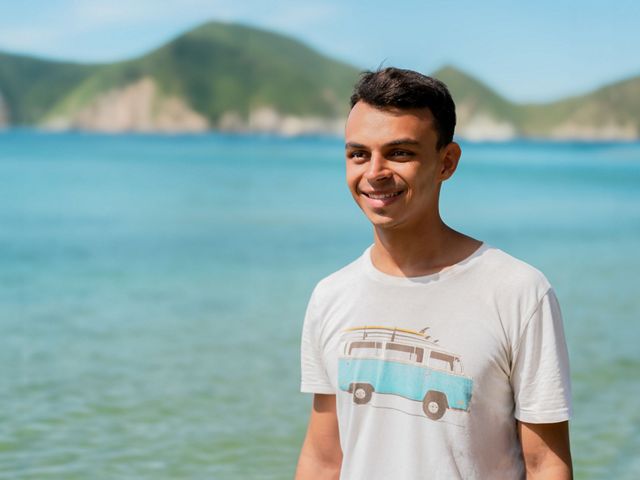
Tag. Musical chairs. Red Rover. Imagine these classic childhood games—but with a conservation twist. That’s exactly the kind of educational tools Tomás Pinzón is developing to address plastic pollution in some of Colombia’s most biodiverse—and threatened—places.
As a participant in a dynamic leadership program offered by the National Geographic Society and The Nature Conservancy, Tomás studied the Chocó region in western Colombia, which has been categorized as one of the most rainy and biodiverse places in the entire world. The area is rich with untouched rainforests, tropical islands and mangroves, but today, excessive amounts of marine plastic threaten both natural habitats and wildlife.
Tomás studied these issues throughout the course of the program and, as part of his final project, presented solutions that included outreach and education. Then, in the summer of 2022, he received seed funding to bring his vision to life in the remote town of El Valle, which is located in the Chocó approximately 100 miles west of Medellin.
A Lifelong Love of Nature
A nature lover since childhood, Tomás had long heard stories of the region’s natural beauty. He had also heard about drug-smuggling and illegal mining that kept many from visiting this special place.
“Once I was older, I decided to take a look at these really undiscovered places and acknowledge that if we don't go as Colombians, we will never connect with them, and we won't ever make things better,” Tomás explains.
To get to know these remote parts of the country, and experience the local cultures, he began traveling around the country. He eventually developed an ecotourism business, and even though he’d never been there himself, he planned a trip to the Chocó to see the sardine migration.
Quote: Tomás Pinzón
For me this was a dream come true, literally. It was very challenging, very hard at times, but I always had the motivation to continue to tackle the challenges. And I just feel I have learned and have grown so much from this experience.
Sign up for Nature News
Get conservation stories, news and local opportunities from where you live.
Sign Up Today“I created an experience for people from Bogotá mainly to go and connect with the Chocó, get to know the rainforest, get to know the ocean, and get to know this remote place in Colombia,” Tomás says. “I arrived and in effect it was this beautiful paradise. The people were amazing, the food was delicious, the ocean was plentiful, the rainforests were lush and mysterious,” he recalls.
But there were other surprises in store as well.
“We also saw the effects of human presence in the area in terms of large-scale global issues. For me, it was very impactful to see these amazing beaches, filled up with water bottles, straws, strollers, and Croc shoes,” he recalls.
“It was such a shock to me that I actually canceled one of the group activities so that we could go and do a beach cleanup for a day.”
Diving Deeper into Environmental Challenges
An Innovative Leadership Program
The beauty of the Chocó—and the immense challenges threatening it—stayed with Tomás. So when he started his externship several months later and was asked to choose a marine topic for study, it came to his mind immediately. Over the course of the program, Tomás learned more about the region’s prolific biodiversity and how myriad issues were threatening both nature and local communities.
“After I completed my [final project], I noticed that there were three main problems that were causing the plastic pollution problem in El Valle,” he says. “Those were oceanic currents, a lack of waste-management infrastructure, and a lack of awareness and action from local community members.”
The externship program encourages participants to not only learn about environmental issues, but to develop solutions that work for local communities. So Tomás decided to focus on the region’s lack of awareness, and use education to trigger action in young people.
“I have a background in working with children and with these outdoor education activities, and I thought that part of the reason why the children weren't very active in these issues is because no one is giving the information in a way that's attractive for them,” he explains.
Quote: Tomás Pinzón
I'm really thankful for the opportunity to have been in this externship, to have a seed-funding project as well, because it completely transformed my way of thinking and my way of acting.
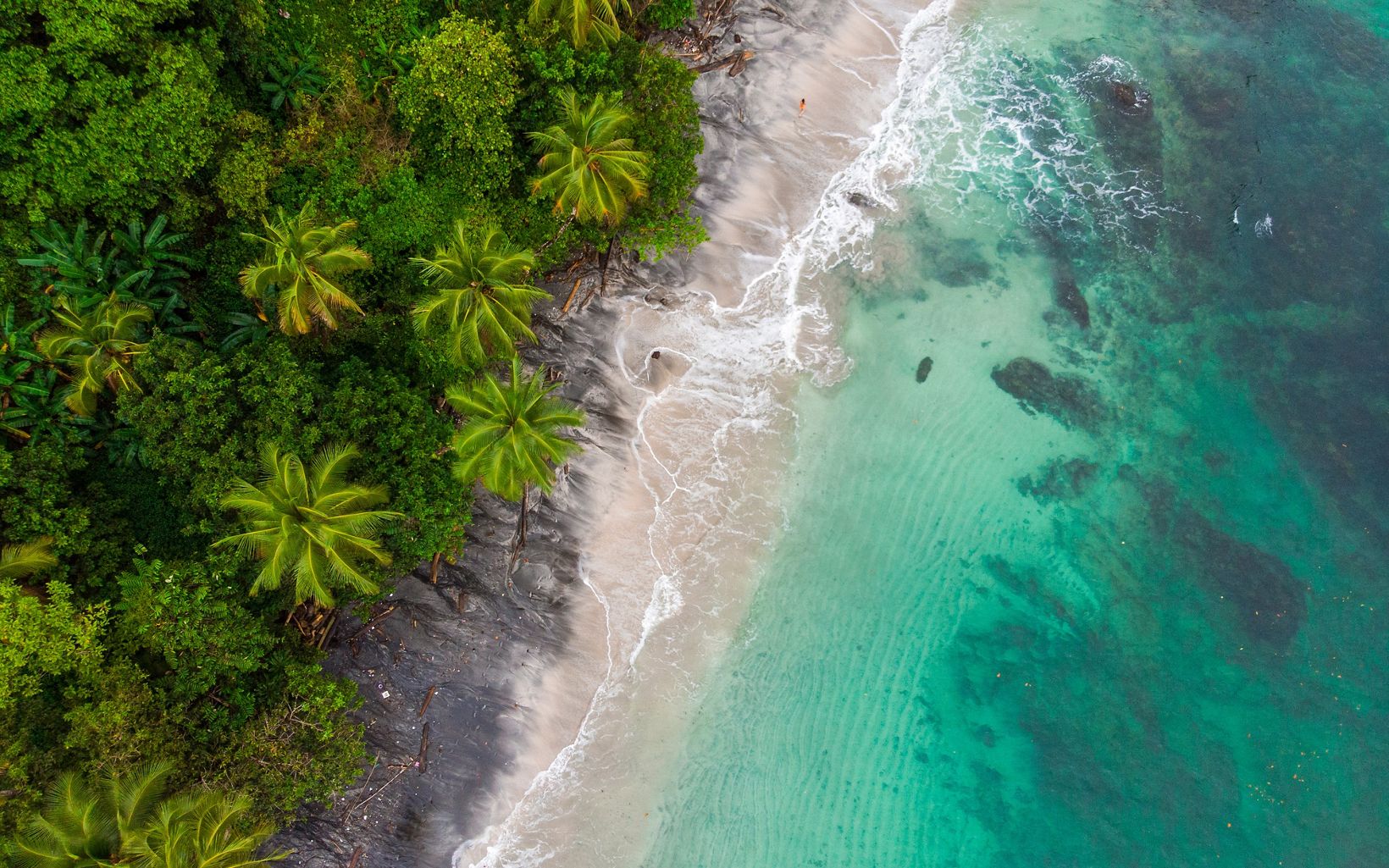
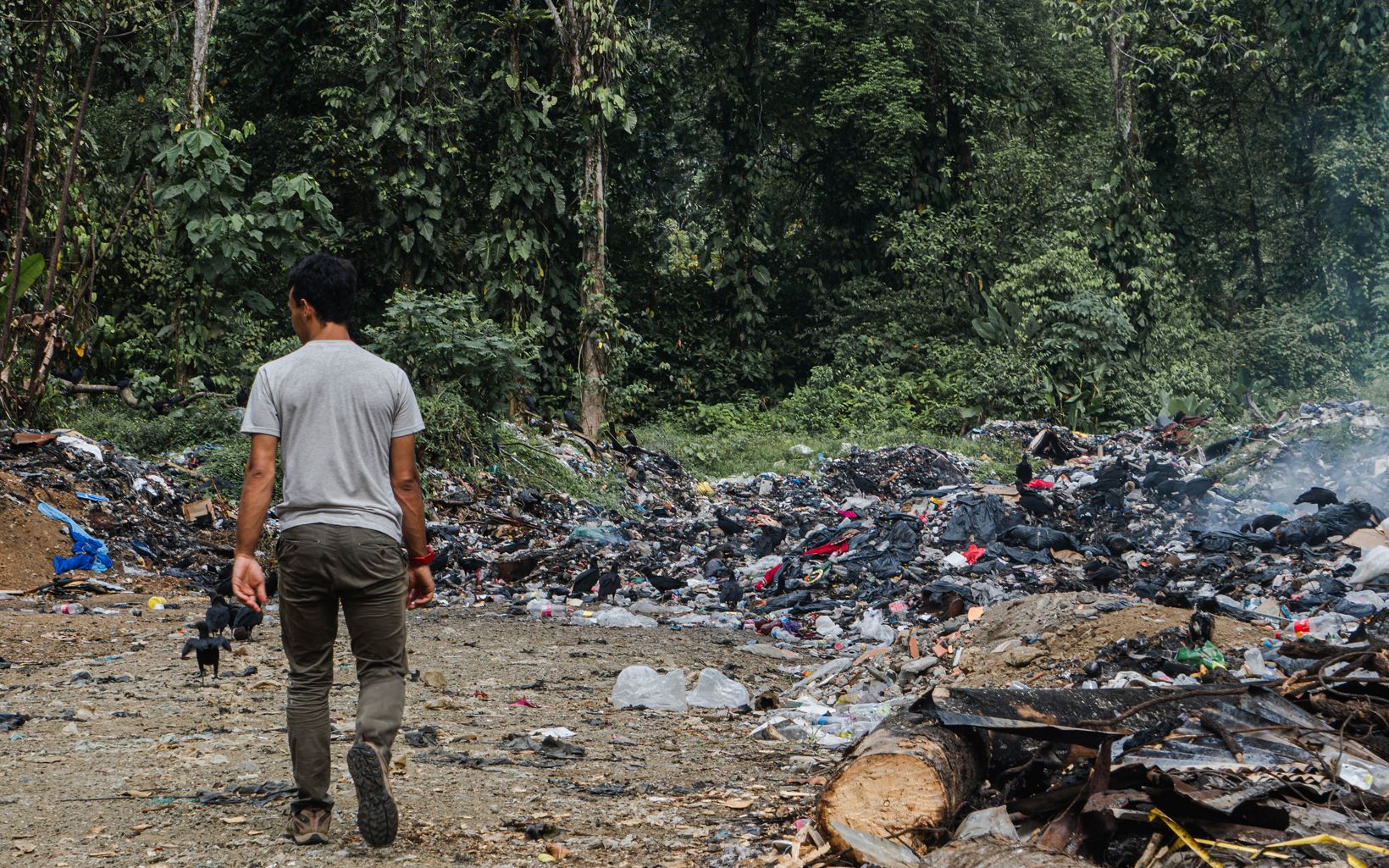
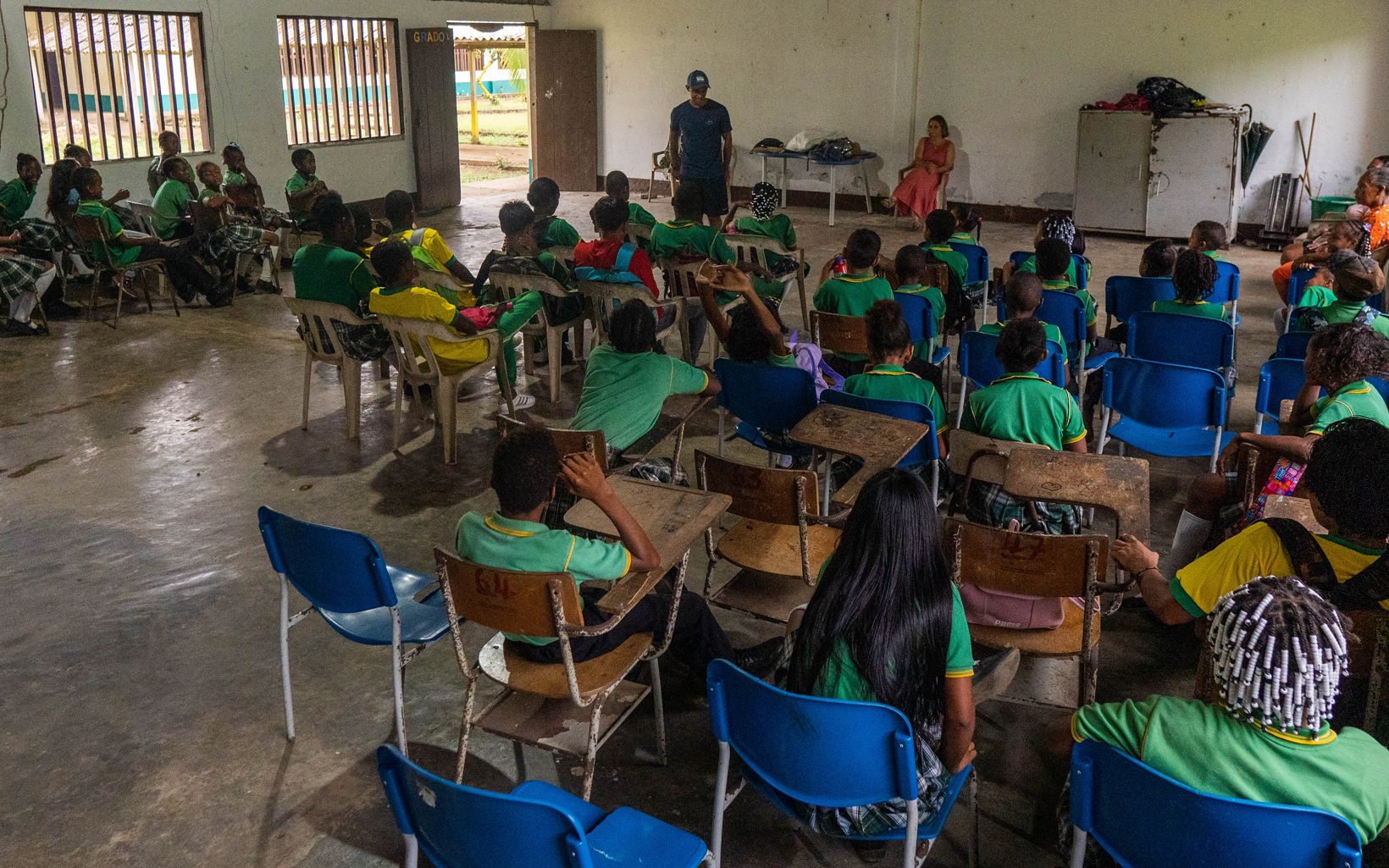
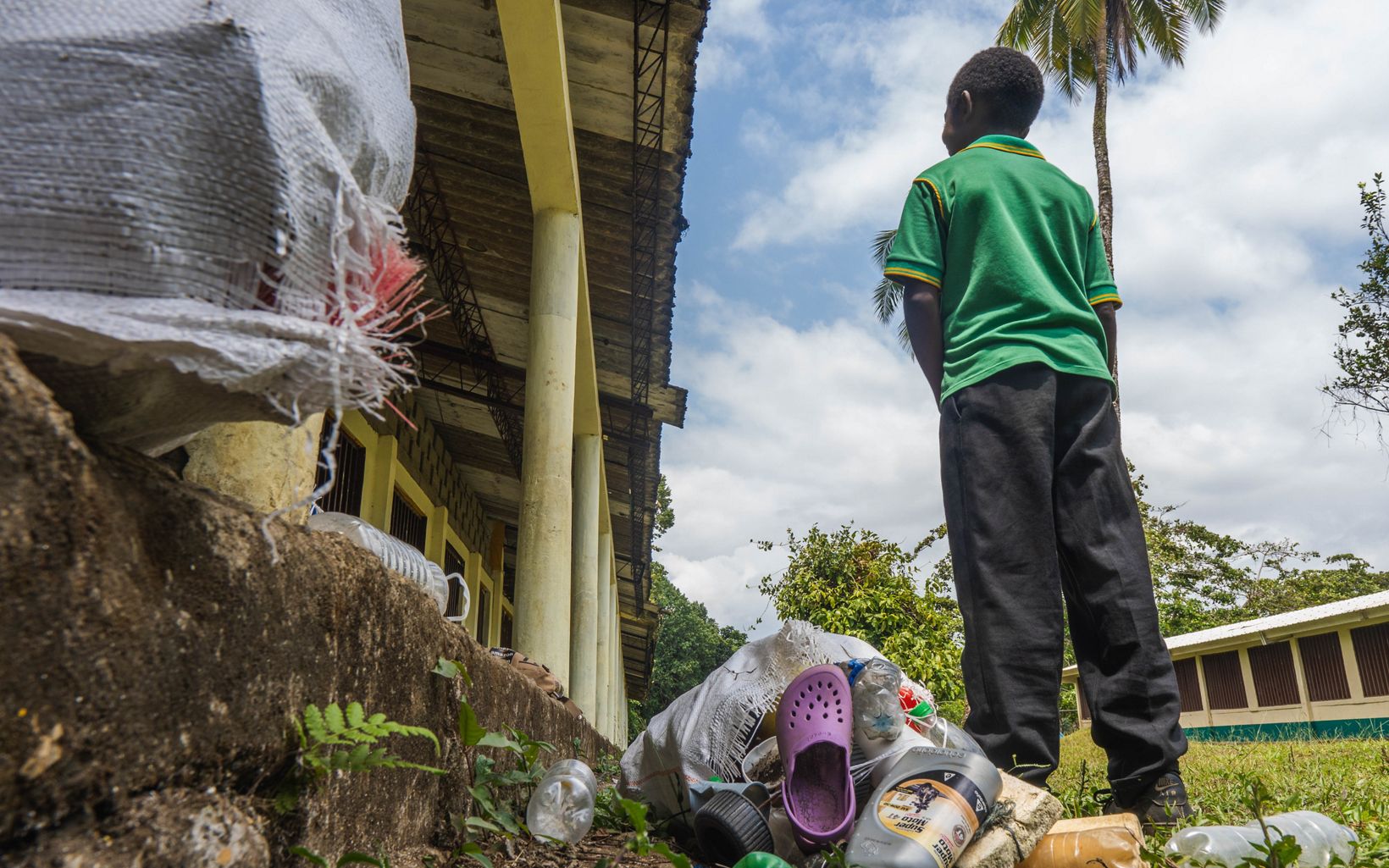
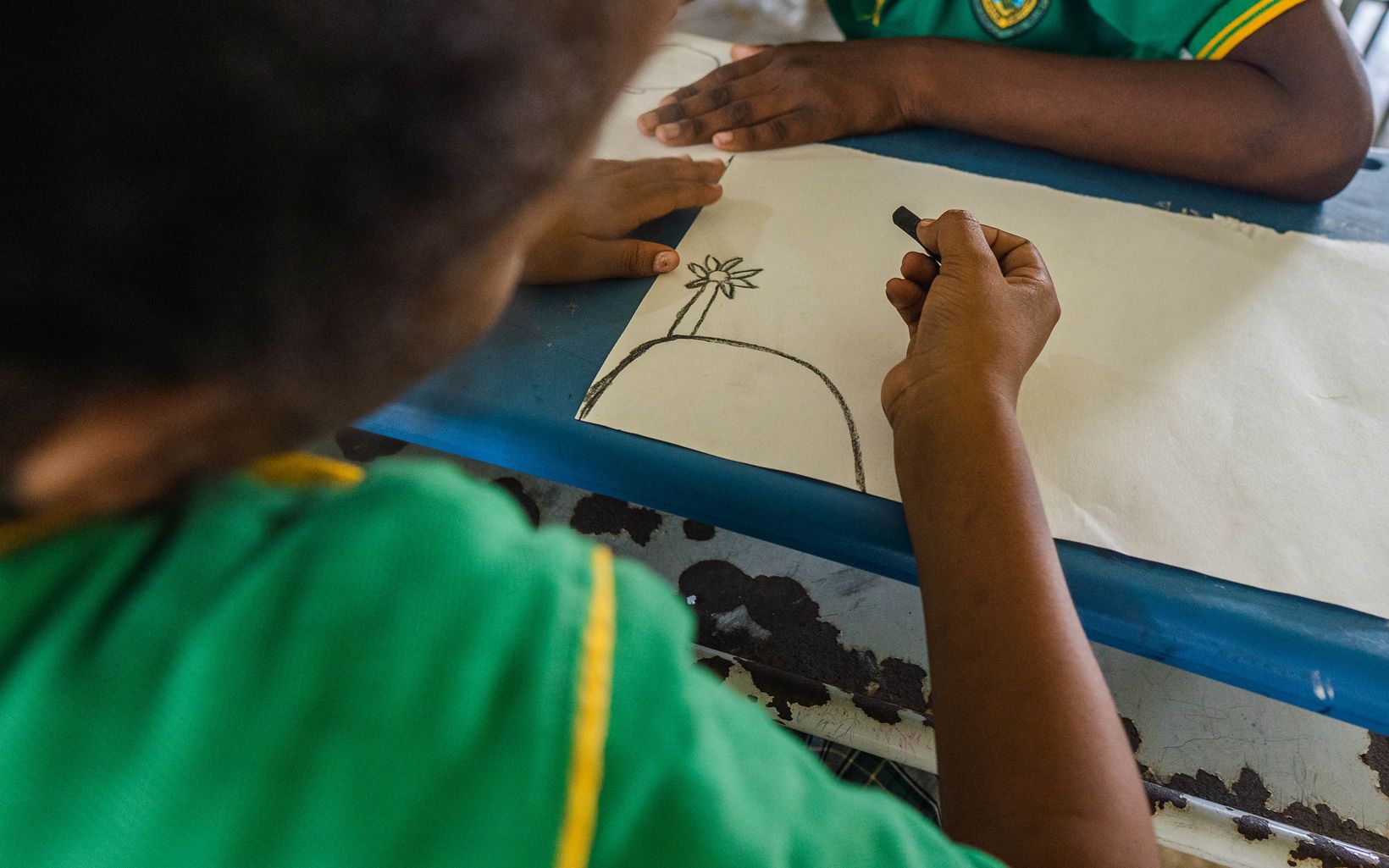





Enacting Change through Education
With the seed funding he received, Tomás developed El Festival del Mar, the Festival of the Ocean, a day of fun and learning about ocean issues for local 4th, 5th and 8th graders. Approximately 60 students took part in the curriculum and activities Tomás planned. Throughout the event, he used gameplay to communicate the importance of taking action for the ocean.
“One game that I think was really impactful and really successful was about overfishing and unsustainable fishing practices,” Tomás says. “It was a modified game of tag where the children were all the fish of the ocean. One designated person was the fisherman who would tag the fish. We did rounds with one fisherman, two fishermen, five fishermen, and then 10 fishermen. And they got to see the impacts of having few fishing in one place versus intensive fishing in one place.”
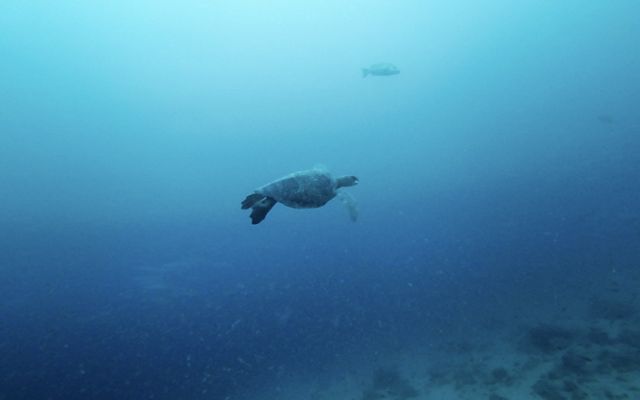
When is paradise truly lost?
See Tomás’ StoryMap
The students also participated in a beach clean-up and an art project, through which they made charcoal drawings about what the ocean means to them. Tomás also dedicated time for them to hear from the local conservation leaders who played a key role in the festival.
“Because traveling to El Chocó from Bogota was difficult, I had really good contacts and really good local allies that were helping, and I think that was key to the success of this project.”
The day closed with reflections from each participant about their next steps—and Tomás looking toward the future.
“I think it was a beautiful proof of concept that the idea worked, and I think there are a lot of coastal communities in Colombia and around the world that could benefit from this type of education. So right now I'm trying to get the dream going, and get more funding for the project.”
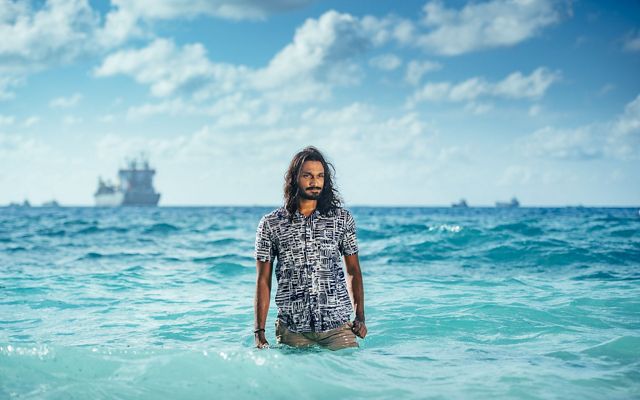
Growth Potential
See how the externship program began and meet three alumni who are already making a difference in their communities.
Inspiration for Earth in Your Inbox
Sign up for our monthly Nature News updates for stories, tips for action and event opportunities.
